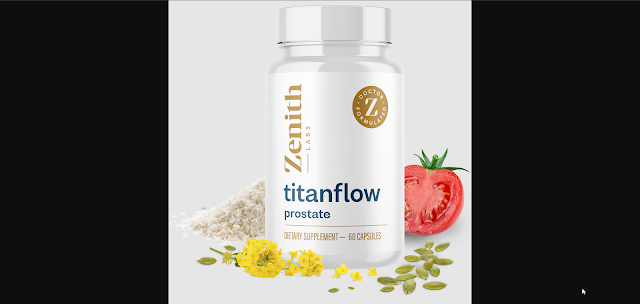TitanFlow Supplement: What You Need to Know
TitanFlow is a natural dietary supplement made to support prostate health and improve urinary flow in men. As men age, the prostate can enlarge, causing frequent urination, discomfort, or a weak stream. TitanFlow aims to ease these issues using a blend of plant-based ingredients and minerals.
According to a 2019 study published in The Journal of Urology, plant sterols like beta-sitosterol were shown to improve urinary symptoms in men with benign prostatic hyperplasia (BPH).
With a healthy prostate and urinary health, one can enjoy and live a dream life. TitanFlow includes this ingredient, along with others like saw palmetto and zinc, to support prostate size and function.
TitanFlow official website is www.titanflow-sale.com.
Unlike synthetic drugs that may cause side effects, TitanFlow is marketed as a natural alternative. It may help reduce nighttime bathroom trips, improve urinary control, and even support sexual wellness in men over 40.
Let's break it down further.
Table: Key Details of TitanFlow Supplement
| Feature | Description |
|---|---|
| Type | Dietary supplement |
| Target Audience | Men, especially over age 40 |
| Main Purpose | Prostate and urinary health support |
| Form | Capsule |
| Daily Dosage | 2 capsules |
| Manufactured in | USA (GMP-certified facility) |
Main Benefits of TitanFlow:
-
Supports a healthy prostate size
-
Improves urinary flow and control
-
Reduces frequent urination, especially at night
-
May enhance male vitality and libido
-
Helps reduce inflammation in the prostate
Core Ingredients in TitanFlow:
-
Saw Palmetto – Traditionally used for prostate health
-
Beta-Sitosterol – Plant sterol shown to improve BPH symptoms
-
Zinc – Essential for prostate and hormone balance
-
Pygeum Bark – Supports urinary comfort
-
Pumpkin Seed Extract – Rich in antioxidants and phytosterols
TitanFlow stands out for its science-backed formula and natural ingredients. While results vary, it offers a promising, gentle option for men looking to maintain prostate health.

Comments
Post a Comment